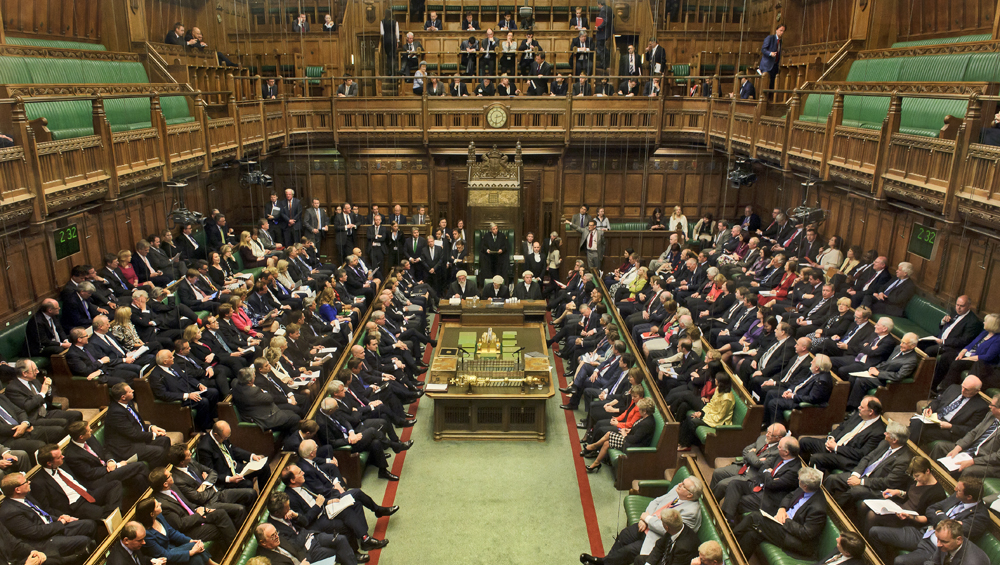Parliament's decision to axe the 'hybrid' House of Commons is a desperate mistake
In this new age of mass remote working, only our MPs would turn their backs on progress


The seemingly endless state of isolation we have found ourselves in for the past three months has taken its toll, warping our minds in weird and wonderful ways. For me, this has manifested as a newfound obsession with the bizarre workings of the virtual House of Commons.
Our parliamentarians’ attempt to follow the government's own advice to work from home has, by all accounts, been a success, barring the occasional sweary glitch. It’s an example of the fascinating dynamics at play, with MPs using Zoom to remote-into parliamentary debates while using a web platform to hold parliamentary votes securely. Surely, in moments like this, there must be a catch... but none came.
Despite the Palace of Westminster being seen as more old fashioned (and, indeed, just old) than the more modern regional assemblies, the project in London has been by far the most comprehensive. The Scottish Parliament in Holyrood, for example, has implemented video conferencing but hasn’t yet added provision for remote voting.
By all measures, the UK’s virtual parliament has been a success, and our MPs have been able to continue to work and scrutinise the government effectively. Then, scrolling through my Twitter feed for nuggets of news, came the catch. The ‘hybrid’ House of Commons has been such a success that it has been ditched in its entirety.
I’m ashamed to admit, for a moment, that I’d bought into the fantasy that our parliamentarians saw the proverbial light and – in a rare departure from form – embraced the progressive force of digital transformation. In typical fashion, however, as soon as they were given a taste of progress, they agreed to spit it straight back out by 350 votes to 258 – a government majority of 92.
When the House of Commons returns on 2 June, after a two-week break coinciding with Whitsun, MPs can no longer participate in debates using video conferencing technology, let alone vote remotely using the platform that’s been in place for just a week. This, incidentally, is a system that House of Commons staff have worked tirelessly to build, install and sufficiently test over a short four-week period.
There are myriad reasons why the decision is a travesty; not just for the interests of progress, but the impracticality of asking MPs to travel into London, a COVID-19 hotspot, from across all the constituent parts of the UK. Many of our MPs also fall in the at-risk age groups, while others will have pressing childcare needs due to schools still being shut, not to mention those who should be ‘shielding’ due to medical conditions.
Get the ITPro daily newsletter
Sign up today and you will receive a free copy of our Future Focus 2025 report - the leading guidance on AI, cybersecurity and other IT challenges as per 700+ senior executives
Beyond that, the decision to bin the remote working technology flies in the face of the government’s own advice to “work from home where possible”, based on the false logic that remote working isn’t actually working. This short-sightedness can be neatly summarised by the views of Conservative MP for Crawley, Henry Smith, who tweeted: “Not that I should be surprised by the lazy left but interesting how work-shy socialist and nationalist MPs tried to keep the remote Parliament going beyond 2 June.”
RELATED RESOURCE

The IT Pro Podcast: Do we still need offices?
Have cloud software and collaboration tools rendered physical workplaces obsolete?
Beyond the sheer incomprehension on display, this also sends a terrible message to many businesses that have embraced the mass shift to remote working and sustained measured benefits as a result. Twitter and OpenText are among companies that will let their staff work from home indefinitely following the pandemic, for example, while workers themselves have also reported feeling more productive as a result of the added flexibility and a lack of commute.
Nevertheless, the fact that our MPs have voted to reject progress doesn’t come as a surprise, despite the fact I readily bought into the delusion that they finally turned a corner. British MPs have gained notoriety for neglecting the benefits of technology, best symbolised by the snail-paced rollout of Wi-Fi across the Palaces of Westminster. One former MP, Dr David Drew, for example, was sufficiently moved by the lack of Wi-Fi across the parliamentary estate as near ago as 2018 that he took it on himself to chase up the state of progress on essential works to improve availability and coverage.
Yesterday's vote to ditch 'hybrid' proceedings is a minor hitch, with not even the House of Commons able to escape the inevitability of progress. For MPs to do so now, however, despite the fact it's proven a success, is like having taken one step forward, only to immediately take two steps back and fall off a cliff.

Keumars Afifi-Sabet is a writer and editor that specialises in public sector, cyber security, and cloud computing. He first joined ITPro as a staff writer in April 2018 and eventually became its Features Editor. Although a regular contributor to other tech sites in the past, these days you will find Keumars on LiveScience, where he runs its Technology section.
-
 CISA issues warning in wake of Oracle cloud credentials leak
CISA issues warning in wake of Oracle cloud credentials leakNews The security agency has published guidance for enterprises at risk
By Ross Kelly
-
 Reports: White House mulling DeepSeek ban amid investigation
Reports: White House mulling DeepSeek ban amid investigationNews Nvidia is caught up in US-China AI battle, but Huang still visits DeepSeek in Beijing
By Nicole Kobie